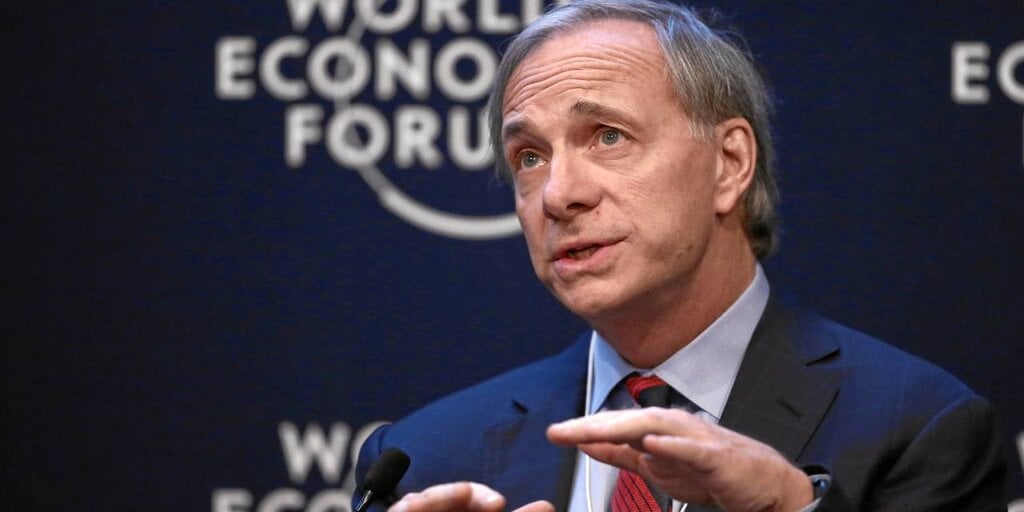Billionaire investor Ray Dalio suggests that the past week’s market meltdown triggered by President Trump’s sweeping tariff policy reveals more than just short-term volatility and a flight to safety.
Dalio, who founded Bridgewater, the world’s largest hedge fund by discretionary assets under management, wrote Monday that the world is witnessing a “once-in-a-lifetime” chaos that signals a “breakdown” of the global order.
Late Monday evening, Trump threatened to raise the tariff on Chinese goods by an additional 50%. China’s Ministry of Commerce responded, claiming that the country will “resolutely take countermeasures” to protect its “rights and interests.”
“While these tariff announcements are very important developments and we all know that President Trump caused them, most people are losing sight of the underlying circumstances that got him elected president and brought these tariffs about,” Dalio wrote.
Dalio argues that tariffs are merely symptoms of five underlying forces reshaping the global order: rapidly mounting debt, domestic politics, a shift in how geopolitical power is wielded, acts of nature, and the impact of technological innovations such as AI on the world economy.
Debt has become “unsustainable because of the large imbalance between debtor-borrowers who owe too much debt and lender-creditors who already hold too much,” Dalio argued, citing the relationship between China and the U.S.
Crypto-equity correlations
While nascent, crypto markets have increasingly moved in lockstep with U.S. equities, showing sensitivity to macroeconomic indicators such as inflation readings and central banking decisions on rate cuts.
Bitcoin’s dive below the $75,000 level less than a day ago, coupled with the broader crypto market’s rapid 7% contraction over the past weekend since “Liberation Day” point to what Dalio describes as a “classic breakdown of the major monetary, political, and geopolitical orders” rather than simply a reaction to trade policy.
Dalio argues that the “interconnectedness” of trade and capital flows means that when the “unsustainable debt” conditions and “breakdown of international order” materialize into concrete policy actions, the resulting flight to safety affects all risk assets simultaneously.
Meanwhile, observers note that the rise in U.S. Treasury yields signals diminishing demand for government debt instruments and opens inflationary expectations.
Still, some divergence may be emerging.
Bitcoin has gained relative strength against the “Magnificent Seven” tech stocks, suggesting that, in theory, the asset can temporarily decouple from traditional risk assets.
Matthew Sigel, head of digital assets research at VanEck, previously told Decrypt that while 10-year Treasury yields surged Monday, Bitcoin’s reaction was “notably subdued,” suggesting a potential decoupling from “old macro sensitivities.”
Edited by Sebastian Sinclair
Daily Debrief Newsletter
Start every day with the top news stories right now, plus original features, a podcast, videos and more.




